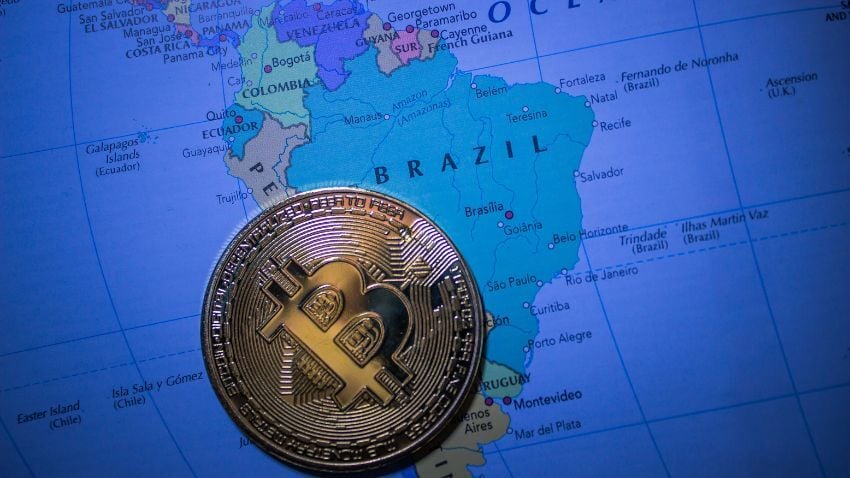Why Your Offshore Family Office Needs PROPER Governance To Succeed
Dedicated entrepreneurs who want to protect their wealth and establish a foundation for future generations see offshore structures, such as trusts,...

7 min read
Entrepreneurs have been relocating and seeking new investments in different countries for centuries. The 19th-century Rothschild family built a financial empire that required significant international mobility. Successful entrepreneurs like Vanderbilt, Carnegie, and Rockefeller migrated to the USA, where their fortunes flourished.
Conversely, anti-capitalist revolutions in the 20th century, such as the Russian Revolution of 1917 and the Chinese Revolution of 1949, forced the wealthy to flee, often to Europe or other parts of Asia. The Cuban Revolution of 1959 led to a mass exodus of the affluent to the USA. In recent decades, the decline of socialism and the rise of global capitalism have facilitated the free migration of the wealthy.
In the global market for nationalities, many governments compete to attract high-net-worth individuals (HNWIs). The exodus of millionaires seeking better investment and living opportunities continues to accelerate. While it is estimated that around 120,000 HNWIs emigrated in 2023, this figure is projected to rise to around 128,000 this year.
Why do well-educated, entrepreneurial, well-connected, and financially strong individuals leave their homelands or diversify their investments and citizenship while preparing exit plans for themselves? Which countries do they most frequently choose to migrate to, and why? Conversely, which countries do they tend to leave, and why?
For HNWIs, answering these questions is crucial. You cannot afford to delay when political instability, economic collapse, and threats to freedom in any country could jeopardize your family's future and your fortune. If you need guidance from an experienced expert to help navigate these complexities, take the first step by subscribing to our newsletter. Let's dive into where millionaires choose to relocate and explore the reasons behind their migration together.
Historically, wealthy individuals, including entrepreneurs and professionals, have migrated for three reasons: pursuing new profit opportunities, escaping persecution, and protecting assets from taxation and financial uncertainty.
With the disappearance of the communist threat and the consolidation of global capitalism, the wealthy now face new risks, such as financial instability, wealth confiscation, economic intervention, progressive taxes, and economic volatility.
However, governments compete in a 'global market of nationalities,' offering favourable migration rules and attractive conditions such as high living standards, social peace, the rule of law, and financial facilities to attract the HNWIs and skilled workers.
Thus, factors driving the wealthy to migrate include economic insecurity, high taxes, weak property rights protection, political uncertainty, austerity measures, and low asset prices. However, violence, terrorism, and events like Brexit also drive the wealthy to relocate. France, for instance, experienced outflows of HNWIs following the Paris terrorist attacks in late 2015 and the Nice attack on July 14th, 2016. In Latin America, Venezuela's economic collapse, hyperinflation, and political violence have forced the wealthy and others to flee the country.
COVID restrictions have been a major turning point for HNWIs' migration decisions. Entrepreneurs, investors, and professionals suddenly found their visas invalid, trapping them within their borders. With a second citizenship, you can cross borders during a crisis, but without it, you may find yourself without viable alternatives.
Economic and financial crises can similarly be important reasons for the migration of capital and labour. The 2007 financial crisis is one of the important examples of capital displacement. In 2006, some of the countries with the largest offshore financial wealth in terms of the ratio of offshore accounts to GDP were the Cayman Islands (8,203%), Jersey (5,050%), Switzerland (548%), Cyprus (289%), and Panama (85%). In 2022, the breakdown of the same figures was as follows: Cayman Islands (3,853%), Jersey (5,689%), Switzerland (329%), Cyprus (228%) and Panama (245%).
We live in a time of rising military conflicts and increasing geopolitical risks. The escalating Russia-Ukraine conflict since 2022, endless wars in the Middle East, ongoing tensions in the Asia-Pacific, and global frictions between China and the USA all contribute to a climate of uncertainty. These uncertainties are significant factors driving the migration of HNWIs.
Related content: Why Every American Must Get A Second Passport In 2024

Not only has Sam Altman, CEO of OpenAI, chosen Indonesia to obtain his golden visa, but many HNWIs are also choosing this place for their second residency or even a second passport
In September 2023, Sam Altman, CEO of OpenAI, made headlines as the first recipient of Indonesia's golden visa. This 10-year visa, granted by Indonesia's immigration authority, highlights his global influence and potential contributions to the country. The milestone received widespread media coverage, from Bloomberg to Time Magazine.
This move by a rising star in artificial intelligence may have surprised many, but it's part of a growing trend in the USA that's making headlines. While the USA is a major destination for migrants, many Americans abroad have renounced their citizenship in recent decades due to the complexity and high cost of the US tax system and the challenge of finding tax experts abroad familiar with it. The reasons for these Americans moving abroad are diverse, including the complex tax system, a deteriorating investment climate, increasing political polarization, and restrictions on freedom of expression. It's not a conspiracy theory to suggest that without tech hubs like Palo Alto, America would lose its appeal to millionaires.
HNWIs typically move from countries perceived as risky to those with greater macroeconomic stability and better financial, legal, and political conditions. Investors seek stability and predictability in taxation, business regulations, currency and capital convertibility, and macroeconomic policies. They aim to avoid risks like increased taxation, inflation, asset confiscation, and ethnic, religious, or political persecution. Historically, migrated HNWIs' home countries often experience frequent macroeconomic and financial crises, high discrimination, political instability, and weak wealth protection institutions.
This stark reality becomes clear in 2024 when we look at the ten countries projected to experience the highest net outflow. Among these ten countries, we quickly notice those known for their market intervention and wealth confiscation, which is no surprise.
China, India, Russia, South Africa, Taiwan, Nigeria and Vietnam are countries that have moved away from free market economies in different ways and to different degrees but have created an insecure political climate that scares off their entrepreneurs. In most countries, investing and securing your assets is impossible without involving political elites. Additionally, political strife at both national and international levels is likely to jeopardize your business and wealth. Therefore, it is wise for HNWIs to diversify their investments and obtain different passports.
However, two countries on the list stand out for their advanced economies and democracies: the UK and South Korea. In 2024, it is projected that 9,500 HNWIs from the UK and 1,200 from South Korea will migrate. A closer look at this situation, which is unsurprising to me, will give you a better understanding of the reasons for millionaires' migration.
The UK, the birthplace of modern democracy and the Industrial Revolution is grappling with financial instability, low economic growth, and less value-added production. The UK simply believed that leaving the EU and closing the door to unskilled workers would be a salvation for its economy. Unfortunately, the political turmoil has only worsened the country's economy.
The significant growth in government spending has eroded Britain's competitive edge. With ongoing budget deficits, public debt has climbed to nearly 102 percent of GDP. The UK, whose manufacturing sector died long ago and lost its high-tech firms abroad, continues to float its economy largely because it is a financial center. If the UK regains its educated, high-value-added individuals and attracts foreign HNWIs, it must again remember the importance of entrepreneurship and economic freedom.
Although South Korea is a very different example from the UK, it is worth mentioning as an interesting example. Despite South Korea's educated and competitive workforce, political corruption, the high cost of doing business, and the concentration of investment and activities in Seoul have contributed to an uneasy and rapidly aging society. Wealthy and educated people prefer to live abroad with more comfortable working conditions and social opportunities.
Related content: Is Atlas Shruggıng? Why The Wealthy Are Leaving The USA

Singapore has also become a popular destination for HNWIs seeking a place to live comfortably without giving up luxurious amenities
In 2024, the top ten countries to attract the most millionaire migrants are the UAE, the USA, Singapore, Canada, Australia, Italy, Switzerland, Greece, Portugal, and Japan. Standouts on this list include the UAE, Singapore, Switzerland, and Portugal. With its appealing tax advantages and investment opportunities, the UAE is expected to draw about 6,700 millionaires, outpacing its closest rival, the US. Singapore, the rising star of the Far East, is projected to welcome 3,500 millionaires, just 300 fewer than the US. Meanwhile, Switzerland, with a population of around 8.7 million, is anticipated to attract 1,500 millionaires.
Switzerland's strong free market economy has earned the trust of millionaires, making it a top destination for their migration. Greece and Portugal, each with a population of around 11 million, also see a significant influx of millionaires. Greece is expected to welcome 1,200 millionaires, while Portugal anticipates 800. Both countries are attracting attention due to their EU memberships and appealing residency by investment programs.
While Japan is expected to welcome 400 millionaires, this number is relatively low for the world's fourth-largest economy with a population of 125 million. Despite its restrictive approach to naturalization, Japan's economic stagnation, collapsing social insurance system, and aging population highlight the need for more high-net-worth individuals.
Numerous locations are popular among expats. St. Kitts and Nevis launched their citizenship by investment program in 1984, followed by Belize in 1985 (closed in 2002) and Dominica in 1993. Starting in 1988 and running until 1998, Ireland offered the Irish Economic Citizenship program. In the aftermath of the 2008-2009 financial crisis, several programs received significant attention. New CBI programs were launched in Cyprus (suspended in 2020), Malta, Antigua and Barbuda, Grenada, and Vanuatu between 2011 and 2014. Other countries that started their programs between 2016 and 2018 were Montenegro, Saint Lucia, and Turkey.
Following the 2007–2009 financial crisis, many EU countries established or expanded RBI and CBI programs. Between 2011 and 2019, nearly 132,000 persons obtained residence or citizenship through these initiatives, resulting in at least EUR 21.4 billion in investment in EU member states.
Related content: Rising Costs: Five Caribbean Citizenship Programs Align Investment Minimums

Panama offers more advantages than other popular destinations, which is one of the reasons I relocated there with my family
HNWIs still choose countries like the USA, Canada, and Australia, but these countries attract fewer millionaires despite their large economies. The UAE is a popular choice due to tax benefits and high living standards, but expats should be aware of geopolitical risks and oil reliance. European countries like Portugal have decreased attractiveness due to difficulties in citizenship procedures, tax burdens, and unwelcoming social attitudes toward expats. When choosing a country, expats should consider factors like citizenship, residency options, tax benefits, climate, language, large expat communities, and access to schools and hospitals. Latin American countries like Panama offer more advantages than other popular destinations, and that’s one of the reasons why I moved there with my family. Understanding their potential can help overcome fears.
Financial crises, unexpected international restrictions, and sudden political and military conflicts have underscored the importance of securing flexible residency options. The only way to fight these uncertainties is to have a Plan-B in place before things get out of control. Now is the best time to secure your family's future and wealth. With my decades of experience and expert team, I am here to help you explore your options.
If you want the best intel from the expat world, including profitable offshore opportunities, little-known tax-saving strategies, and hard-won insights on immigration, passports, and Plan-B residencies, all delivered to your inbox every single week, then join our daily correspondence, EMS Pulse®. Currently enjoyed by over 84,000 expats and expat-hopefuls worldwide. Fill in the form below to join our newsletter free:

Written by Mikkel Thorup
Mikkel Thorup is the world’s most sought-after expat consultant. He focuses on helping high-net-worth private clients to legally mitigate tax liabilities, obtain a second residency and citizenship, and assemble a portfolio of foreign investments including international real estate, timber plantations, agricultural land and other hard-money tangible assets. Mikkel is the Founder and CEO at Expat Money®, a private consulting firm started in 2017. He hosts the popular weekly podcast, the Expat Money Show, and wrote the definitive #1-Best Selling book Expat Secrets - How To Pay Zero Taxes, Live Overseas And Make Giant Piles Of Money, and his second book: Expats Guide On Moving To Mexico.

Dedicated entrepreneurs who want to protect their wealth and establish a foundation for future generations see offshore structures, such as trusts,...

Imagine standing at the airport check-in counter, ticket in hand, ready to board your flight, only to be told that your passport has been suspended....

The economist Friedrich Hayek once said he hoped we would one day “take money out of the hands of government.” That vision remained theoretical for...